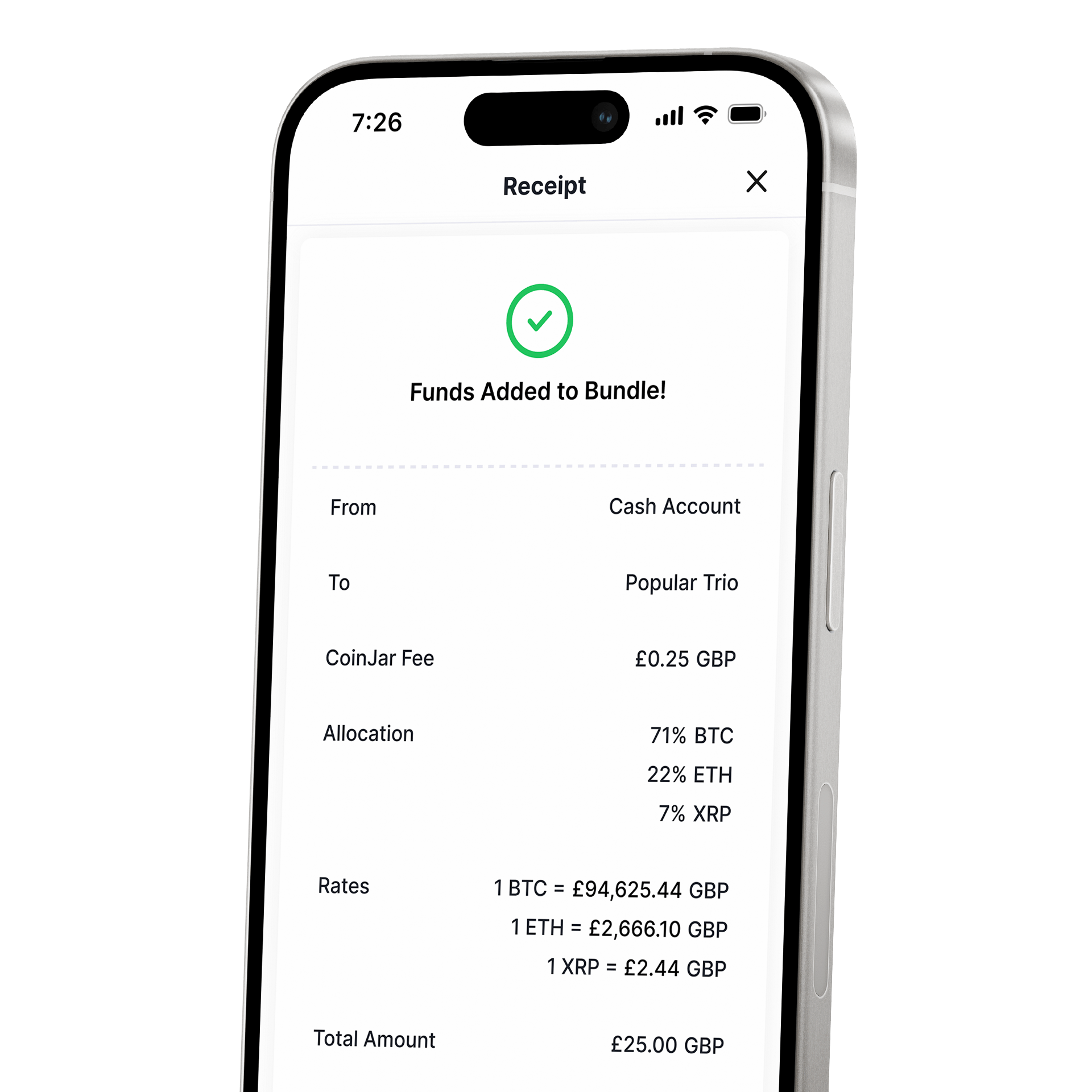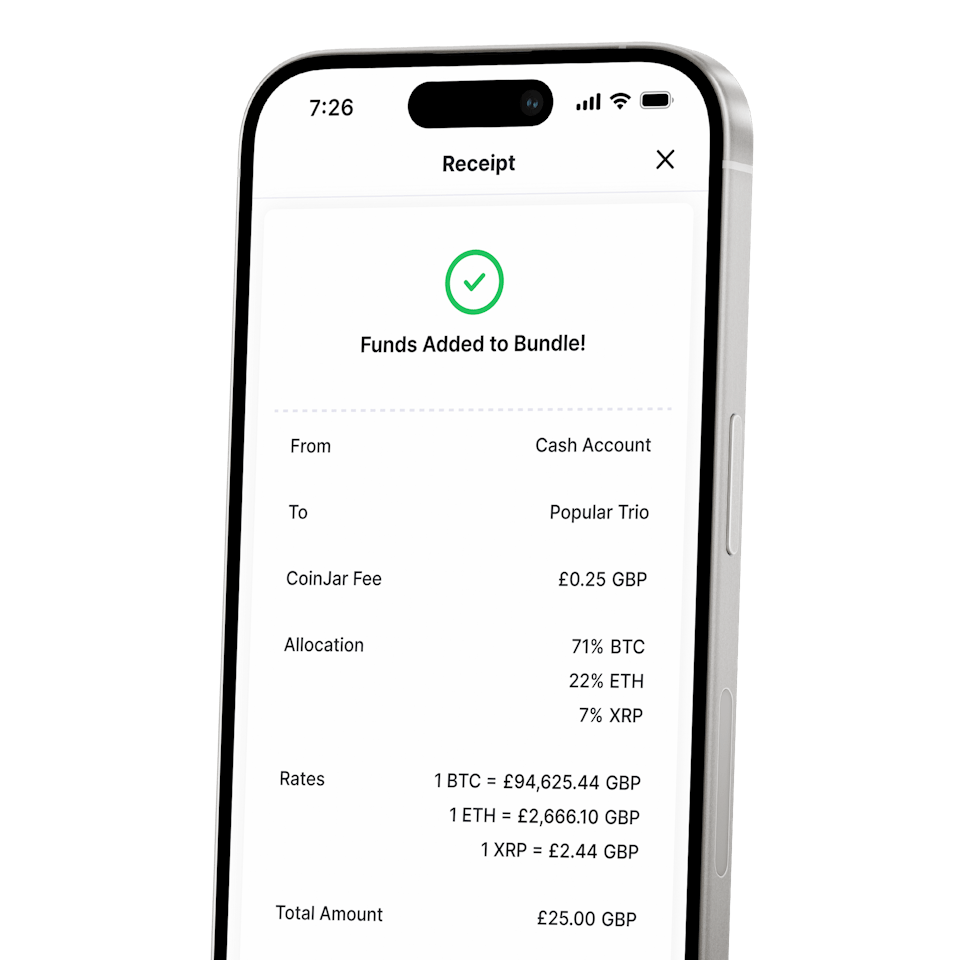Buy Basic Attention Token
Basic Attention Token
BAT
Overview
What is Basic Attention Token?
Why investors buy Basic Attention Token (BAT): This token is all about making digital advertising better for everyone, and it does this by using blockchain tech.
What Is Basic Attention Token (BAT)
Created by Brendan Eich, the mastermind behind JavaScript and Mozilla/Firefox, the main goal with BAT is to create a fairer and more transparent advertising ecosystem for advertisers, content creators, and users.
Pretty much, Basic Attention Token (BAT) is a token designed to revolutionise digital advertising.
Here are the critical issues within the digital advertising landscape that BAT was designed to tackle.
Privacy
In the current advertising ecosystem, user privacy is often compromised. Advertisers and trackers collect vast amounts of personal data without explicit consent. BAT seeks to protect user privacy by enabling anonymous monitoring of attention without compromising sensitive information.
Intrusive advertising
Traditional online ads can be super annoying. They slow down browsing experiences and stop user engagement. BAT aims to provide an alternative by promoting non-intrusive, consent-based ads that respect users’ preferences and browsing flow.
Inefficient ads
Advertisers aren’t necessarily having a great time either. Users are bombarded with irrelevant ads, which means that a lot of advertising budgets are wasted.
BAT aims to create a more targeted and efficient ad delivery mechanism, benefiting both viewers and advertisers.
Fair payment
BAT aims to use a fair compensation model. Users receive BAT tokens for their attention, while publishers are rewarded based on user engagement. This equitable distribution of value is designed to offer a more balanced ecosystem, at least theoretically anyway.
Spending BAT
BAT is designed for use within the Brave ecosystem, however, it is starting to escape into other areas of life. For example, it can be used in games like Splinterlands.
Origins of BAT crypto
The story of BAT begins with the launch of the Brave Browser in 2016. The privacy-focused browser blocks unsolicited ads, trackers, and malware.
Brave also rewards users with BAT for voluntarily viewing privacy-preserving ads. Brendan Eich’s commitment to user privacy and valuing attention played a central role in the conception of both Brave Browser and the BAT project.
How does BAT work?
User attention rewards
When users opt in to view ads, they earn BAT directly. This crypto-native browser ensures that users’ attention is compensated.
Advertiser-publisher interaction
Advertisers pay BAT to publishers for posting ads. Users’ data is compiled and shared with verified advertisers, allowing them to create targeted campaigns.
Brave says that 70% of advertising revenue is distributed to users as compensation for their time spent viewing ads.
Integration with the Brave browser
Since its integration into the Brave browser’s global private ad platform, BAT claims it has:
-60 million monthly active users -23 million daily active users -1.8 million verified creators accepting BAT -Creation of millions of wallets -Thousands of ad campaigns with leading brands -Growing utility in innovative blockchain gaming projects.
Bridging Ethereum and Solana
BAT now spans both Ethereum and Solana blockchains, offering utility to both ecosystems.
Impressive stats
Brave claims that BAT is the first crypto application with over one million users.
They have 4.1 million on-chain transactions, 10.62 million wallets have been created, and they have 1.7 million verified creators.
There are 67.1 million monthly active users, 25.3 million daily users, and 233,000 verified creators.
There are nearly 1 million participants that accept BAT, including major internet and crypto companies.
Why Own BAT?
Privacy
Brave Browser lets users control the ads they view and how their data is used. No more intrusive ads or data commodification without consent.
Crypto-native ecosystem
BAT aligns with the blockchain ethos of compensating end users directly, bypassing centralised entities.
Support of content creators
Users can also support their favorite content creators by automatically sending them BAT tokens based on engagement.
Basic Attention Token (BAT): Conclusion
BAT’s innovative approach to digital advertising empowers users, rewards attention, and disrupts the status quo. Whether you’re passionate about privacy, supporting content creators, or conveniently want to explore the crypto world, BAT is something you need to dig into!







Cash, credit or crypto?
Buy Basic Attention Token using Visa or Mastercard. Get cash in your account with Faster Payments Service (FPS). Convert crypto-to-crypto with a single click.How to buy Basic Attention Token with CoinJar
Start your cryptocurrency portfolio with CoinJar by following these steps.
Finder Awards Winner 2024
CRYPTO TRADING - VALUEFinder Awards Winner 2024
CRYPTO TRADING - VALUE
Featured In


CoinJar App
All-in-one crypto walletCoinJar App
All-in-one crypto wallet

CoinJar Exchange
FOR PROFESSIONAL CRYPTO TRADERS
CoinJar Exchange
FOR PROFESSIONAL CRYPTO TRADERS
CoinJar DCA & Bundles
AUTOMATE & DIVERSIFY YOUR PORTFOLIOCoinJar DCA & Bundles
AUTOMATE & DIVERSIFY YOUR PORTFOLIO
Standard Risk Warning: The above article is not to be read as investment, legal or tax advice and it takes no account of particular personal or market circumstances; all readers should seek independent investment advice before investing in cryptocurrencies.
The article is provided for general information and educational purposes only, no responsibility or liability is accepted for any errors of fact or omission expressed therein. Past performance is not a reliable indicator of future results.
We use third party banking, safekeeping and payment providers, and the failure of any of these providers could also lead to a loss of your assets. We recommend you obtain financial advice before making a decision to use your credit card to purchase cryptoassets or to invest in cryptoassets. Capital Gains Tax may be payable on profits.
CoinJar's digital currency exchange services are operated in the UK by CoinJar UK Limited (company number 8905988), registered by the Financial Conduct Authority as a Cryptoasset Exchange Provider and Custodian Wallet Provider in the United Kingdom under the Money Laundering, Terrorist Financing and Transfer of Funds (Information on the Payer) Regulations 2017, as amended (Firm Reference No. 928767). In the UK, it's legal to buy, hold, and trade crypto, however cryptocurrency is not regulated in the UK.
It's vital to understand that once your money is in the crypto ecosystem, there are no rules to protect it, unlike with regular investments. You should not expect to be protected if something goes wrong. So, if you make any crypto-related investments, you're unlikely to have recourse to the Financial Services Compensation Scheme (FSCS) or the Financial Ombudsman Service (FOS) if something goes wrong.
The performance of most cryptocurrency can be highly volatile, with their value dropping as quickly as it can rise. Past performance is not an indication of future results. Remember: Don't invest unless you're prepared to lose all the money you invest. This is a high-risk investment and you should not expect to be protected if something goes wrong. Take 2 mins to learn more at: https://www.coinjar.com/uk/risk-summary.
UK residents are required to complete an assessment to show they understand the risks associated with what crypto/investment they are about to buy, in accordance with local legislation. Additionally, they must wait for a 24-hour "cooling off" period, before their account is active, due to local regulations. If you use a credit card to buy cryptocurrency, you would be putting borrowed money at a risk of loss.
We recommend you obtain financial advice before making a decision to use your credit card to purchase cryptoassets or to invest in cryptoassets.
Specific risks associated with DeFi tokens Decentralised Finance (or 'DeFi') tokens (e.g. UNI, AAVE) are crypto-assets linked to financial applications and protocols built on decentralised blockchain technology. DeFi tokens carry the following risks:
Smart contract risk: DeFi relies heavily on smart contracts. Even a minor coding error or oversight can lead to a contract being exploited, potentially resulting in significant losses for DeFi tokens.
Regulatory risk: DeFi operates in a decentralised manner, often without intermediaries or financial crime controls. Regulatory bodies across jurisdictions might introduce new regulations impacting the use, value, or legality of certain DeFi protocols or assets.
Rug-pulls / Exit scams: Some DeFi projects might be launched by anonymous or pseudonymous teams, increasing the risk of "rug pulls" where developers abandon the project and withdraw funds, leaving investors with worthless tokens.
Data/oracle risk: DeFi protocols often rely on external data sources or 'oracles. Manipulation or inaccuracies in these data sources can lead to unintended financial outcomes within the protocols. Protocol complexity: The complexity of some DeFi protocols can make it difficult for average users to fully understand the mechanisms and associated risks.
Specific risks associated with meme coins:
'Meme coins' (e.g. DOGE, SHIB, PEPE) are crypto-assets whose value is driven primarily by community interest and online trends.
Meme coins carry the following risks:
Volatility risk: Meme coins can have extreme price volatility, often experiencing rapid and unpredictable price fluctuations within short periods. The value of meme coins can be influenced by social media trends, celebrity endorsements, and other factors unrelated to traditional investment fundamentals. Lack of utility: Meme coins often lack intrinsic value or utility, being primarily driven by community interest, online trends, and speculative trading.
Market manipulation: Meme coins may be susceptible to increased risk of market manipulation including 'pump-and-dump' schemes, where the price is artificially inflated followed by a sudden crash.
Lack of transparency: Meme coins may have limited available information about their development teams, goals, and financials. This lack of transparency can make it challenging to assess the credibility and potential of a meme coin accurately.
Emotional investing: Meme coins often garner strong emotional reactions from investors, leading to impulsive decisions. Emotional trading activity can amplify losses.
Specific risks associated with stablecoins:
There is a risk that any particular stablecoin may not hold their value as against any fiat currency; or may not hold their value as against any other asset. Stablecoins carry the following risks:
Depegging events: Depegging events may occur with stablecoins that fail to maintain adequate controls and risk mitigants. A depegging event is when the value of the stablecoin no longer matches the value of the underlying asset. This could result in a loss of some or all of your investment.
Counterparty risk: Counterparty risk arises when an asset is backed by collateral, involving a third party maintaining the collateral, which introduces risk if the party becomes insolvent or fails to maintain it.
Redemption risk: Redemption risk refers to the possibility that an asset's ability to be redeemed for underlying collateral may not be as anticipated during market fluctuations or operational issues.
Collateral risk: Collateral risk refers to the possibility of the collateral's value declining or becoming volatile, potentially impacting the asset's stability, particularly when it is another crypto-asset.
Exchange rate fluctuations: Stablecoins, often denominated in US Dollars, expose investors to fluctuations in the USD:GBP exchange rate. Algorithmic risk: Algorithm risk refers to the possibility of an asset's stability being compromised due to unexpected failure or behaviour of the underlying algorithm, potentially leading to loss of value.
CoinJar does not endorse the content of, and cannot guarantee or verify the safety of any third-party websites. Visit these websites at your own risk.
Your information is handled in accordance with CoinJar’s Privacy Policy.
Cryptoassets traded on CoinJar UK Limited are largely unregulated in the UK, and you are unable to access the Financial Service Compensation Scheme or the Financial Ombudsman Service.
We use third party banking, safekeeping and payment providers, and the failure of any of these providers could also lead to a loss of your assets.
We recommend you obtain financial advice before making a decision to use your credit card to purchase cryptoassets or to invest in cryptoassets. Capital Gains Tax may be payable on profits.
CoinJar’s digital currency exchange services are operated in the UK by CoinJar UK Limited (company number 8905988), registered by the Financial Conduct Authority as a Cryptoasset Exchange Provider and Custodian Wallet Provider in the United Kingdom under the Money Laundering, Terrorist Financing and Transfer of Funds (Information on the Payer) Regulations 2017, as amended (Firm Reference No. 928767).
Apple Pay and Apple Watch are trademarks of Apple Inc. Google Pay is a trademark of Google LLC.
This site is protected by reCAPTCHA and the Google Privacy Policy and Terms of Service apply.